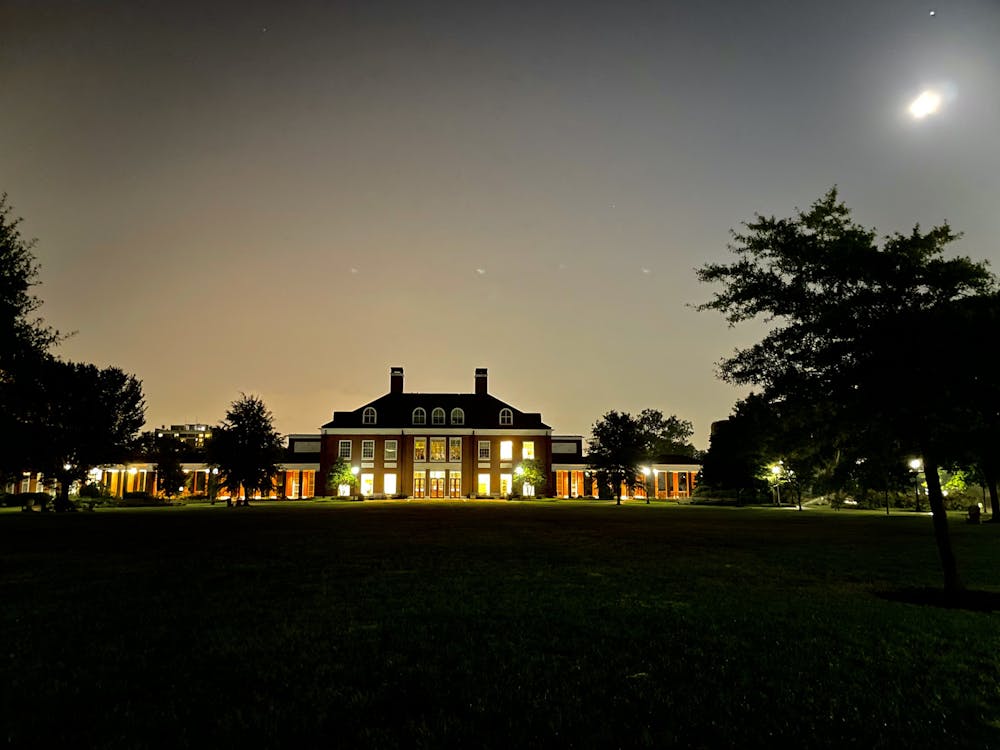A matchmaking service recently launched on campus to mixed reviews. The Hopkins Marriage Pact claims to promote new connections between students, primarily platonic. However, students are still seeking clarity after promotional materials and the survey itself seem to emphasize sexual relationships.
In fall 2017, Stanford University students Liam McGregor and Sophia Sterling-Angus created the Marriage Pact as a project for an economics class. They designed a 50-question survey meant to find the most compatible matches on campus. During its first week at Stanford, over half of the campus participated. The nonprofit took off during the pandemic and is now active at 55 schools.
The service operates on the basis that college is the largest pool of similarly aged people that most will ever be in, and that many people marry their college classmates. According to the Hopkins Marriage Pact, the service has since shifted to emphasize more casual matches.
Freshman Greta Cortez told The News-Letter that she appreciates the pact and considers the advertising to have been successful in garnering interest.
“I think it’s a great initiative for the campus,” she said. “It is fun, gets people talking and gives everyone more of a reason to branch out and network with others... The posts definitely stir the pot and get you intrigued to complete the Marriage Pact. The survey questions I believe are well calculated in terms of finding a ‘compatible partner.’“
Sophomore Fiza Ali wrote in an email to The News-Letter that she’s skeptical of the validity of the pact’s results, though she acknowledges that the service could help students meet new people.
“I feel pretty indifferent towards it,” she wrote. “It's a good thing that attempts are being made at helping people forge friendships [or] relationships around campus, though I do question the accuracy of it.”
The Student Government Association (SGA) originally introduced the Hopkins Marriage Pact at their Sept. 12 meeting, where they discussed how to clarify misconceptions about data-sharing and promote the service. Though SGA discussed the project, it is not an SGA initiative.
During the meeting, Executive Secretary Elaina Regier emphasized that while the service originally began as a matchmaking service, it is now focused on friendships. Sophomore Class President Kobi Khong stated the service could be used for either platonic or romantic matches.
Following the Sept. 12 meeting, The News-Letter received conflicting responses from members of SGA when asked about the disparity between the service’s name and the claim that it now centers friendship.
The Hopkins Marriage Pact‘s social media posts suggest that the service is primarily geared toward romantic or sexual relationships, with messages such as “Ride something other than the JHMI,” “Wanna be touched by something other than a COVID swab?” and “Put the ‘D’ in D-Level.” Similarly, multiple survey questions asked about users’ sexual preferences, with prompts like, “How long do you wait to have sex when you start seeing someone?” and whether users “generally like to take control during sex.”
Additionally, the The Marriage Pact’s own materials describe the quiz as a serious romantic consideration. A document linked in a question on the survey about what religion(s) you’d prefer your match not follow describes the rationale behind the service.
“The Marriage Pact, as the name implies, aims to match you with a potential life partner,” the document said.
Ali feels promotional materials should do a better job of clarifying the purpose of the service.
“I think the Marriage Pact needs to be better advertised, whether it's the flyers going around or the Instagram page, I think there are some subtle hints that the matchmaking process is actually geared towards relationships,” she wrote. “Better advertisement on their part should help resolve the issue and prevent people from getting a type of match they didn’t exactly sign up for.”
In an interview with The News-Letter, sophomore Juliana Cui echoed the need for clarity, especially in regard to users’ expectations for matchmaking.
“I think that it can be a little confusing depending on what different people want, [because what] if two people are matched [and] are looking for different kinds of relationships?” she said.
Cui thinks the ambiguity in advertising is by design.
”By encouraging both romantic and platonic relationships, Marriage Pact is able to get more participation which leads to more ‘accurate’ matches,” she said.
In an email to The News-Letter, Junior Class Senator Chinat Yu described the Marriage Pact as a catalyst for meaningful relationships.
“It’ll introduce you to exactly one person on campus, based on the things that matter in relationships deep down: compatible values, or what really matters to you,” he wrote. “It’s all about the values — what’s really important at the end of the day.”
He also dismissed the perception that the Marriage Pact is an inherently sexually oriented platform. He reasoned that the questionnaire would be the worst way to search for sexual partners due to the absence of any visual aspects such as photos.
Yu further emphasized that the Marriage Pact is not a matchmaking service as the name suggests.
“By definition, a ‘marriage pact’ is a cheeky, silly agreement two students could make to marry each other as a backup plan, in case neither finds anyone better by the time they’re 40 years old,” he wrote. “Students generally take this framing for fun, not literally.”
In his email, Yu reflected on hearing about the Marriage Pact in the New York Times and NPR, as well as from friends attending other universities. He felt the service would be helpful for the Hopkins community as well.
“Last year was difficult and isolating, so we were excited to do something that could bring the campus together,” he wrote.
According to the Instagram account, over 1,600 undergraduate students have signed up. The survey closes this week and matches will be released subsequently.





